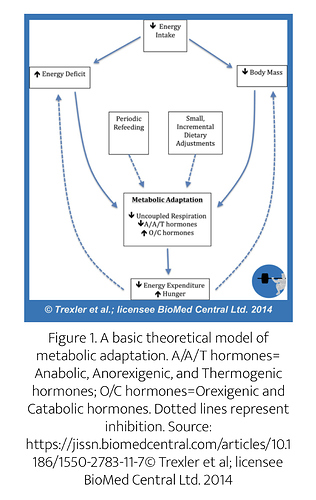Honestly I don’t want to try fasting. I’ve been trying to keto for several months and seen NO benefits. (posted several times about my struggles since April) At the point where I feel like I’m wasting my time, so looking to change something. Wonder when adding fasting is the thing to do. I’m trying to eat consistently, be patient, not chase ketones (but check to know I’m in ketosis), don’t weigh myself often; yet the scale does not really change. Often I know there’s a wide margin of error with the scale too. Sometimes my weight bumps up or down but I have not seen a big downward change body size and not had a big change of calories in my diet. For instance I would expect to gain a pound if I ate 3500 extra calories, which has not happened. I have gone up in weight suddenly (or down) which I attribute to the scale’s inherent inconsistencies/innacuracies. I’ve confirmed by weighing myself several times in a row and seen different results. Not trying to chase numbers–but my overall body seems to have the same belly fat.
According to various measurements (again, inconsistent scale) I have 29% fat, 139 pounds of lean muscle mass, 14 pounds of visceral fat and 50.3% water. It also says my bone mass is 7.4 pounds and I really think that is wrong.
I’m 49, 6’1, 208. For several months being doing keto and showing consistent ketosis. Body fat has been consistent at 29% since the beginning, and incredibly frustrated it’s not changing. My normal ketone base seems to be 3.3 or so (on a breath meter). Sometimes higher first thing in the morning. I’m eating around my maintenance calories of 1950 or so, and lately trying to eat less to be in a deficit but afraid to try fasting as I’m also afraid of adding to what seems like a slow metabolism. I already feel like I don’t eat a lot. I don’t shy away from going over protein recommendation (according to keto calorie app) as I want to build muscle which seems to be very hard for me. I can’t lift weights as my gym is closed again during the pandemic. It was open for about a month after being closed for several. During that period I went back to running either long distance (45 min) or HIIT. Guess I’ll be going back to that.
as far as what I’m eating, my numbers are fairly consistent, but lately been breaking down and adding some keto snacks. But still not going over 50 g carbs. My net carbs are usually in the single digits for percent of total calories eaten. Seems to be never more than 6%. My carbs are usually coming from veg like broccoli, brussell sprouts, lettuce, peppers, etc. NO starch. I weigh things out as much as I can so I can stay consistent with calories and nutrient balance.
I have been eating keto brownies lately. Make them myself and portion them out so I know what I’m eating. I really binged last night, and had three of them. My total calorie intake yesterday was 2036. 50g carbs or 9%, 159g carbs or 66%, and 136g protein or 25%. This morning my ketones were 4.5.




